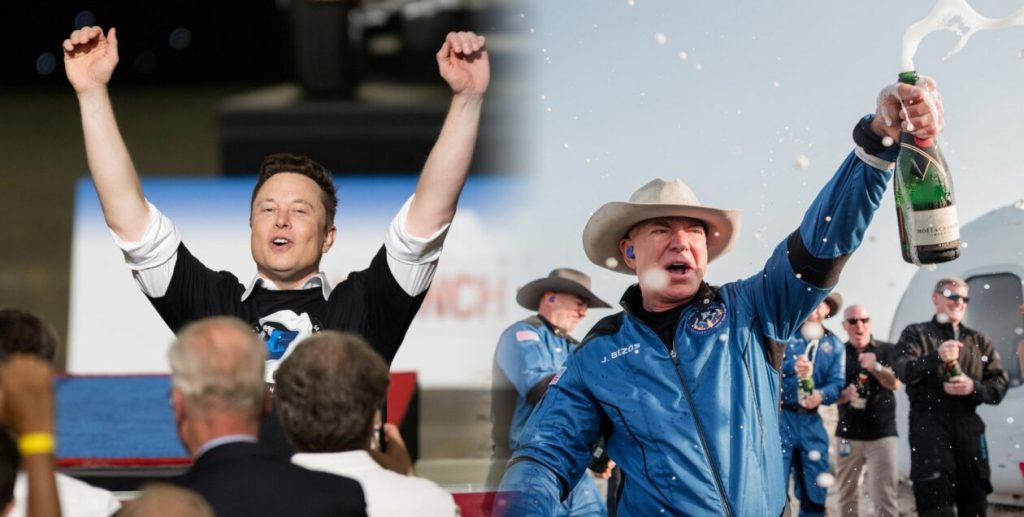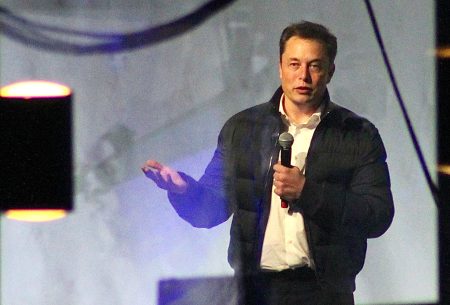The New Space Race: Musk, Bezos, and America’s Lunar Ambitions
In the vast expanse of space ambition, two titans stand at the forefront of a modern space race that mirrors the Cold War competition of decades past. Elon Musk and Jeff Bezos, through their respective companies SpaceX and Blue Origin, are engaged in a high-stakes rivalry that transcends personal competition and has become intertwined with America’s national interests. As chronicled in Christian Davenport’s “Rocket Dreams,” this competition unfolds against the backdrop of intensifying international tensions, particularly between the United States and China, both racing to return humans to the lunar surface by 2030.
While SpaceX currently leads this commercial space race with regular astronaut launches to the International Space Station and securing NASA’s initial lunar lander contract, Blue Origin is steadily building momentum. After a decade of development, Blue Origin’s New Glenn rocket finally took flight in January, marking a significant milestone for Bezos’s space company. Yet behind closed doors, Blue Origin is already planning something even more ambitious – a super-heavy lift rocket dubbed “New Armstrong,” named after the first human to walk on the moon. When pressed for details at the New Glenn launch, Bezos remained characteristically tight-lipped, only acknowledging they are “working on a vehicle that will come after New Glenn and lift more mass.” This secretive project appears designed to rival SpaceX’s massive Starship system, which despite several spectacular test flights, continues to face development challenges of its own.
The stakes in this new space race extend far beyond corporate competition. During his inaugural address, President Trump declared reaching Mars as America’s “manifest destiny,” with Musk visibly approving from the audience. More recently, Acting NASA Administrator Sean Duffy emphatically stated, “I’ll be damned if the Chinese beat NASA, or beat America, back to the moon.” Unlike the original space race where NASA controlled all aspects of human spaceflight, today’s lunar ambitions rely heavily on private companies like SpaceX and Blue Origin to build the critical transportation systems. This shift represents a fundamental transformation in how America approaches space exploration, with billionaire-funded companies now essential partners in national space policy.
Behind the public launches and announcements lies a more complex story of personal frustration and corporate transformation. For Bezos, SpaceX’s commanding lead has been a source of ongoing dissatisfaction. Davenport’s book reveals multiple instances where “Amazon Jeff” – the more demanding executive persona Bezos developed at his retail giant – pushed Blue Origin to accelerate progress. This pressure culminated in appointing former Amazon executive Dave Limp as Blue Origin’s CEO two years ago, bringing Amazon-style urgency to the space venture. While New Glenn’s successful debut flight demonstrated progress, the company still faces significant challenges, including repeated delays for its second mission that would send orbiters to Mars. As Davenport notes, “They still have a lot to prove, and they’re still really, really far behind SpaceX.”
What makes this space race particularly fascinating is how each company is approaching the broader challenge of sustainable space presence. While SpaceX focuses primarily on transportation systems like Starship, Blue Origin appears to be making significant headway in developing off-world infrastructure technologies. Davenport describes visiting a secret Blue Origin laboratory north of Los Angeles where engineers are developing “Blue Alchemist” – technology designed to convert lunar regolith into valuable resources like oxygen, solar cells, and transmission wire. This NASA-funded project recently passed a critical design review, potentially giving Blue Origin an advantage in creating sustainable lunar operations. As Davenport observes, while “Elon talk[s] about, yeah, we’re going to build a city on Mars,” the practical technologies to support sustained human presence beyond Earth seem more developed at Blue Origin.
The future of this space race carries profound implications that extend beyond commercial success. With the Trump administration returning to power, questions arise about political pressure potentially compromising safety in the rush to beat China to the moon. “You begin to worry about safety — about cutting corners, doing something to accelerate the program, and getting there for the political goal of beating China,” Davenport cautions. Additionally, the growing militarization of space adds another layer of complexity, with Davenport noting that “the idea that space is a warfighting domain and a contested environment — that is here, unfortunately.” Just as the original space race served as a proxy for Cold War technological superiority, today’s lunar ambitions represent not just scientific achievement but national security interests and global prestige in an increasingly contested cosmic domain. Whether through SpaceX’s flashy rocket catches or Blue Origin’s methodical progress, these private companies have become essential players in America’s strategic positioning beyond Earth’s atmosphere.















